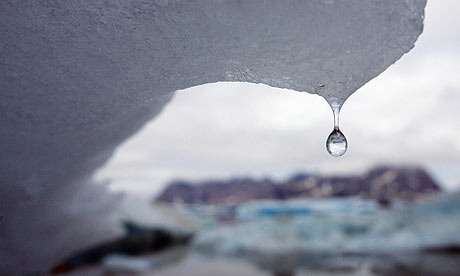 Somewhere in West Texas is a 7-inch radioactive cylinder that Halliburton would like to find. Anyone who comes across it is advised to keep their distance.
Somewhere in West Texas is a 7-inch radioactive cylinder that Halliburton would like to find. Anyone who comes across it is advised to keep their distance.
The oil field services company lost track of the device, which is used to assess potential sites for hydraulic fracturing, last Tuesday while trying to transport it from Pecos to a well site near Odessa 130 miles away. A special unit of the Texas National Guard has now stepped in to aid Halliburton in a search for the cylinder, according to Bloomberg.
Halliburton misplaces mystery radioactive device: 'Do not handle'
'Fracking' brine: PA gas-well waste full of radium

Radium in one sample of Marcellus shale wastewater, also called brine, that Pennsylvania officials collected in 2009 was 3,609 times more radioactive than a federal safety limit for drinking water. It was 300 times higher than a Nuclear Regulatory Commission limit for industrial discharges to water.
Arctic sea ice shrinks to smallest extent ever recorded
 Sea ice in the Arctic has shrunk to its smallest extent ever recorded, smashing the previous record minimum and prompting warnings of accelerated climate change.
Sea ice in the Arctic has shrunk to its smallest extent ever recorded, smashing the previous record minimum and prompting warnings of accelerated climate change.
Satellite images show that the rapid summer melt has reduced the area of frozen sea to less than 3.5 million square kilometres this week – less than half the area typically occupied four decades ago.
Arctic sea ice cover has been shrinking since the 1970s when it averaged around 8m sq km a year, but such a dramatic collapse in ice cover in one year is highly unusual.
Nuclear power champions Japan and France turn away
 Two of nuclear power's greatest champions dealt the industry a heavy blow on Friday, with Japan deciding to phase out its plants and France confirming plans to cut its heavy reliance on the technology following concern over the Fukushima disaster.
Two of nuclear power's greatest champions dealt the industry a heavy blow on Friday, with Japan deciding to phase out its plants and France confirming plans to cut its heavy reliance on the technology following concern over the Fukushima disaster.
Japan, which produced more than 10 percent of global nuclear power before it suffered last year's accident at Fukushima, joins Germany, Switzerland and Belgium in deciding to shut down nuclear plants and to spend money on renewable energy instead.
A September 11th Catastrophe You've Probably Never Heard About
 On September 11, 1957, 55 years ago tomorrow, a national catastrophe was unfolding, one you likely have never heard about before. At the Rocky Flats nuclear weapons facility near Denver, inside the plutonium processing building, a fire had started in an area designed to be fireproof.
On September 11, 1957, 55 years ago tomorrow, a national catastrophe was unfolding, one you likely have never heard about before. At the Rocky Flats nuclear weapons facility near Denver, inside the plutonium processing building, a fire had started in an area designed to be fireproof.
Soon it was roaring over, through, and around the carefully constricted plutonium as one Cold-War-era safety feature after another failed. The roof of the building, the building itself, were threatened. And plumes of radioactive smoke went straight up into Colorado's late summer night air. High into the air, if you believe the witnesses.
More Gas “Plumes” Documented In Bradford County, PA
 Some of the consequences of stray methane leaking from natural gas wells are easier to spot than others. Overflowing water wells and bubbling methane puddles are easy to document. But methane plumes are odorless and invisible, so you need some sophisticated equipment to track it.
Some of the consequences of stray methane leaking from natural gas wells are easier to spot than others. Overflowing water wells and bubbling methane puddles are easy to document. But methane plumes are odorless and invisible, so you need some sophisticated equipment to track it.
Equipment like the “portable laser-based methane measurement system and combustible gas indicator” that Gas Safety, Incorporated’s Bob Ackley used to document methane plumes near Leroy Township, Bradford County, on July 25.
The 100 species at risk of extinction - because Man has no use for them
 The spoon-billed sandpiper, three-toed sloth and a long-beaked echidna named after Sir David Attenborough are among the 100 most endangered species in the world, according to a new study.
The spoon-billed sandpiper, three-toed sloth and a long-beaked echidna named after Sir David Attenborough are among the 100 most endangered species in the world, according to a new study.
The list of at-risk species has been published as conservationists warn that rare mammals, plants and fungi are being sacrificed as their habitats are appropriated for human use. More than 8,000 scientists from the International Union for Conservation of Nature's Species Survival Commission (IUCN SSC) helped compile the list of species closest to extinction, which was published by the Zoological Society of London (ZSL).
More Articles...
Page 94 of 202

 Environmental Glance
Environmental Glance






























